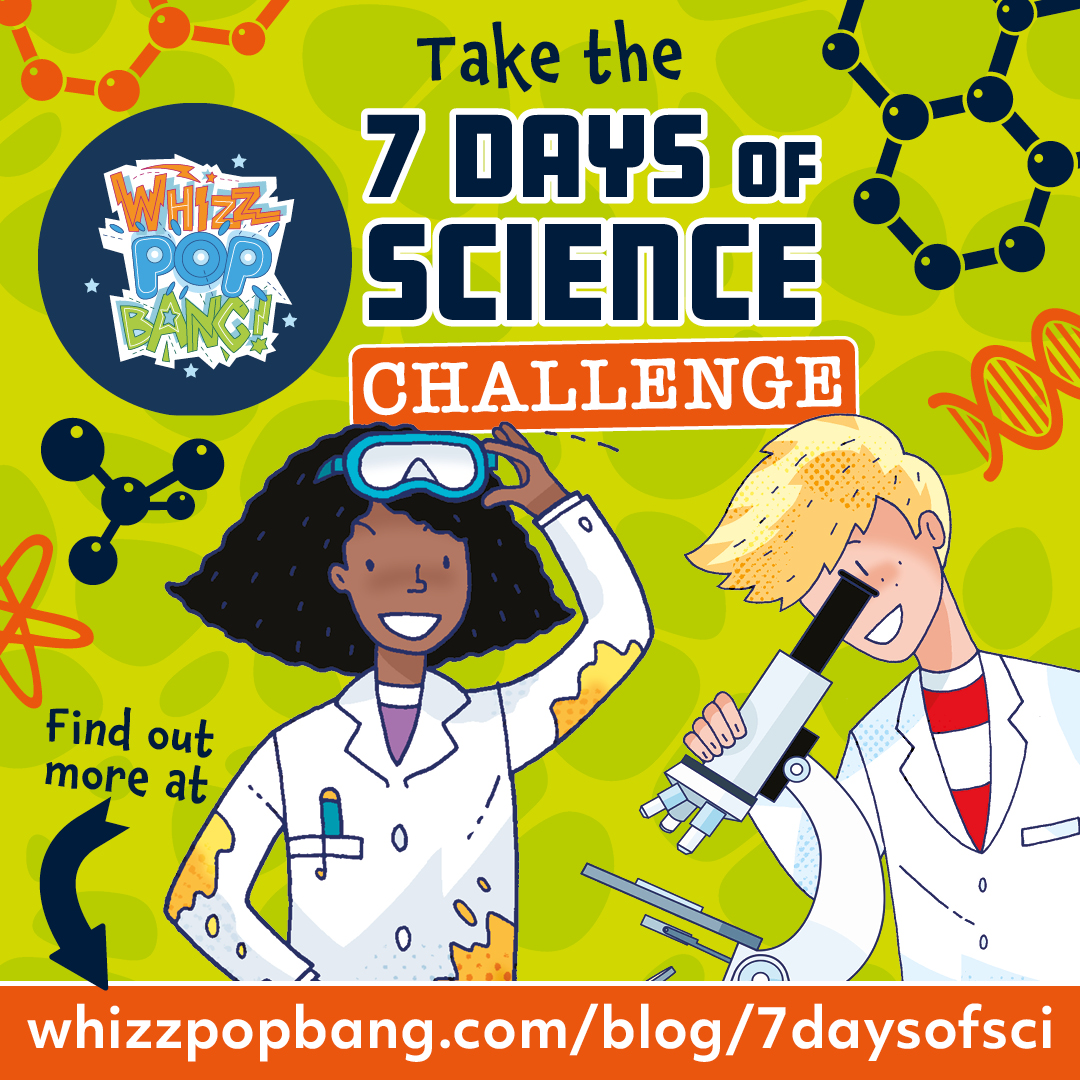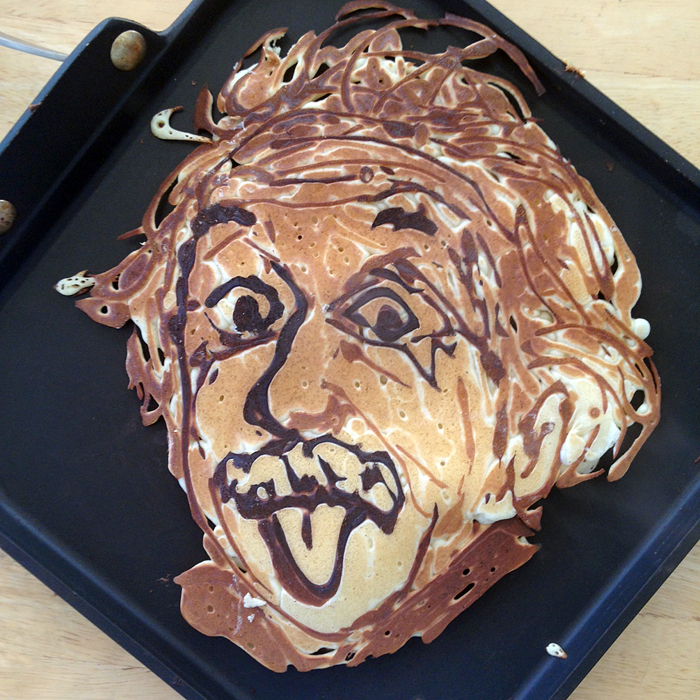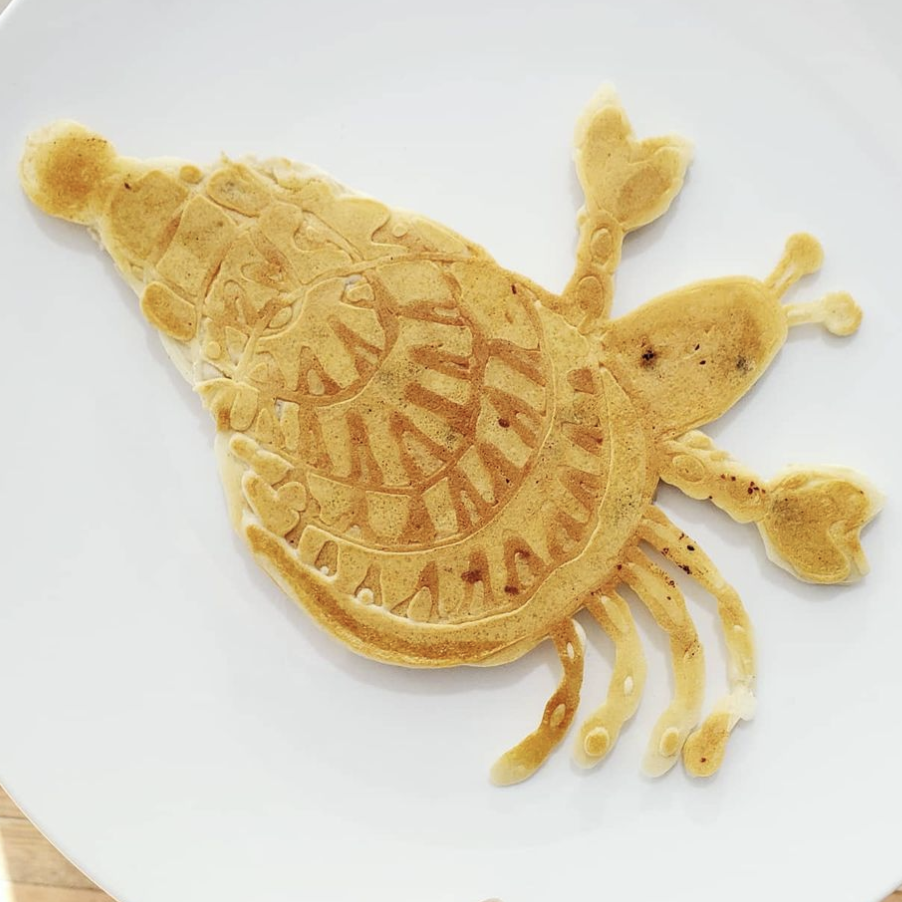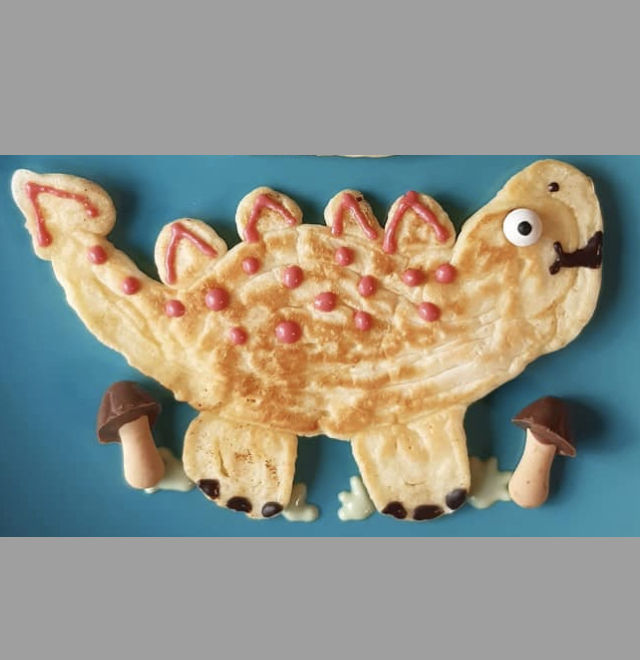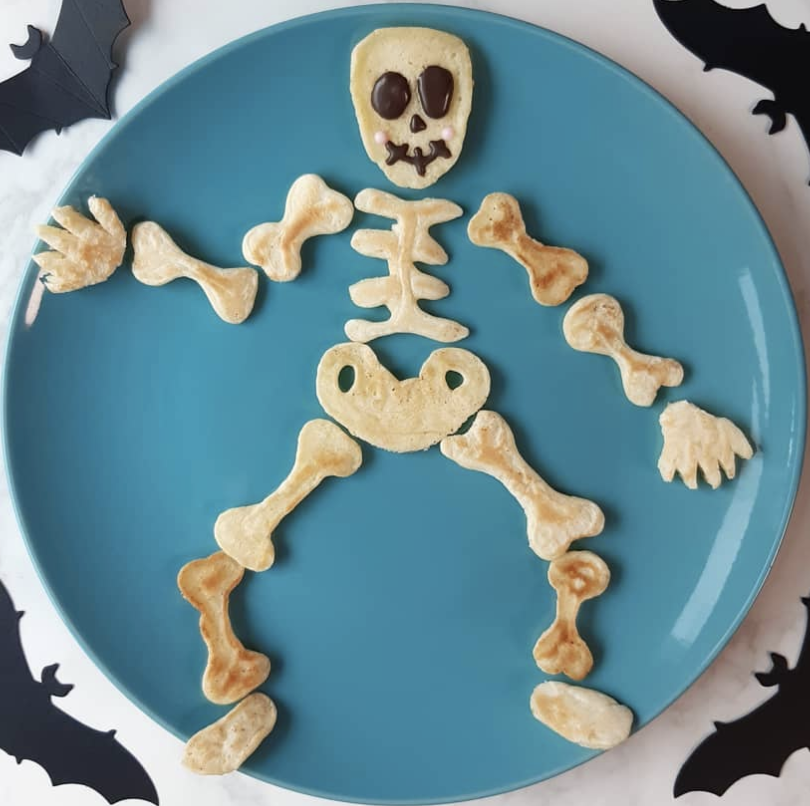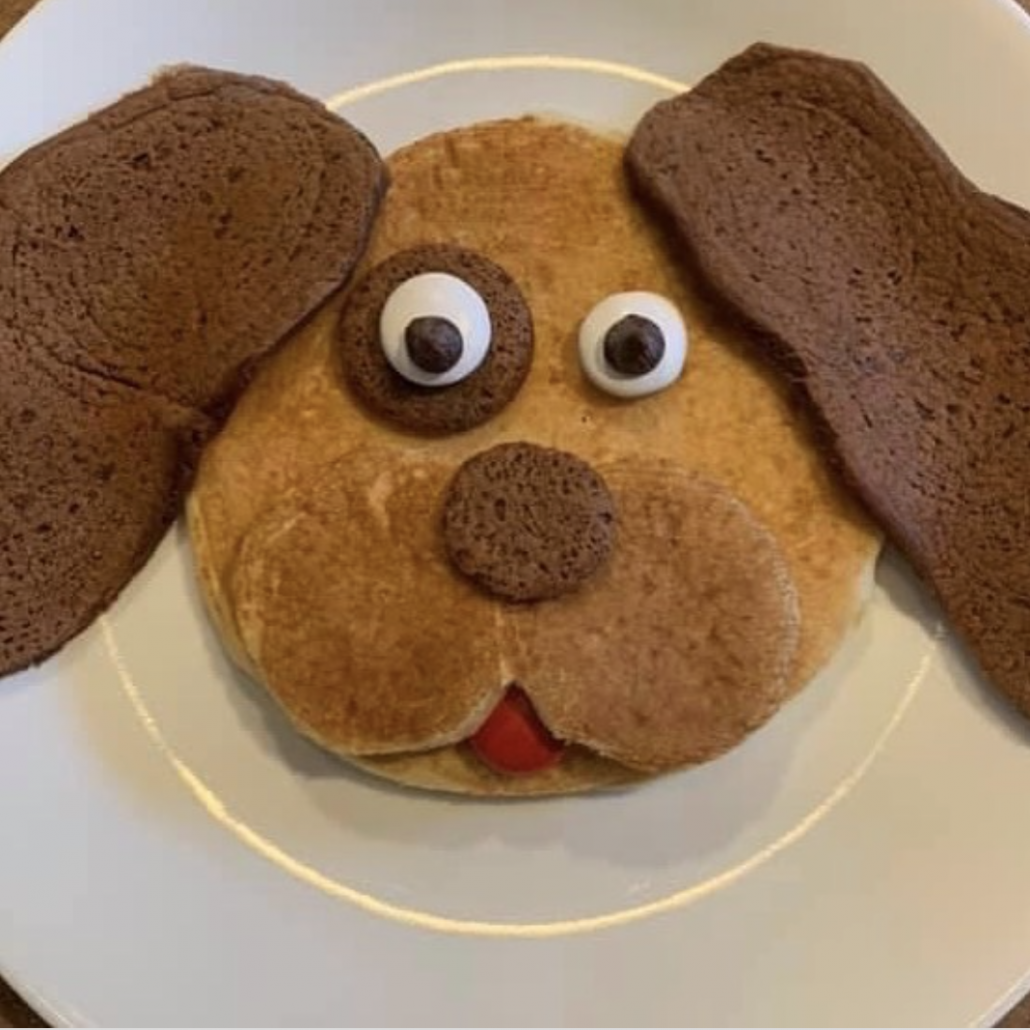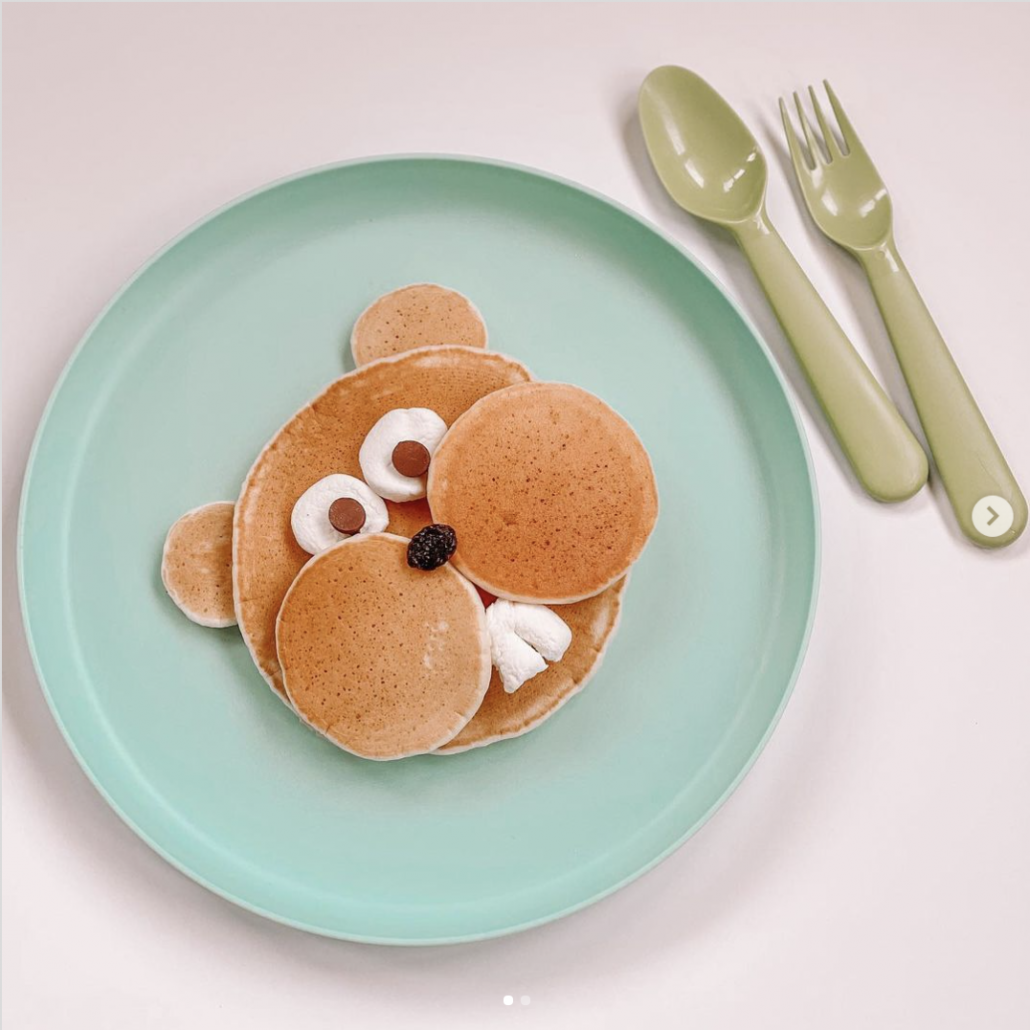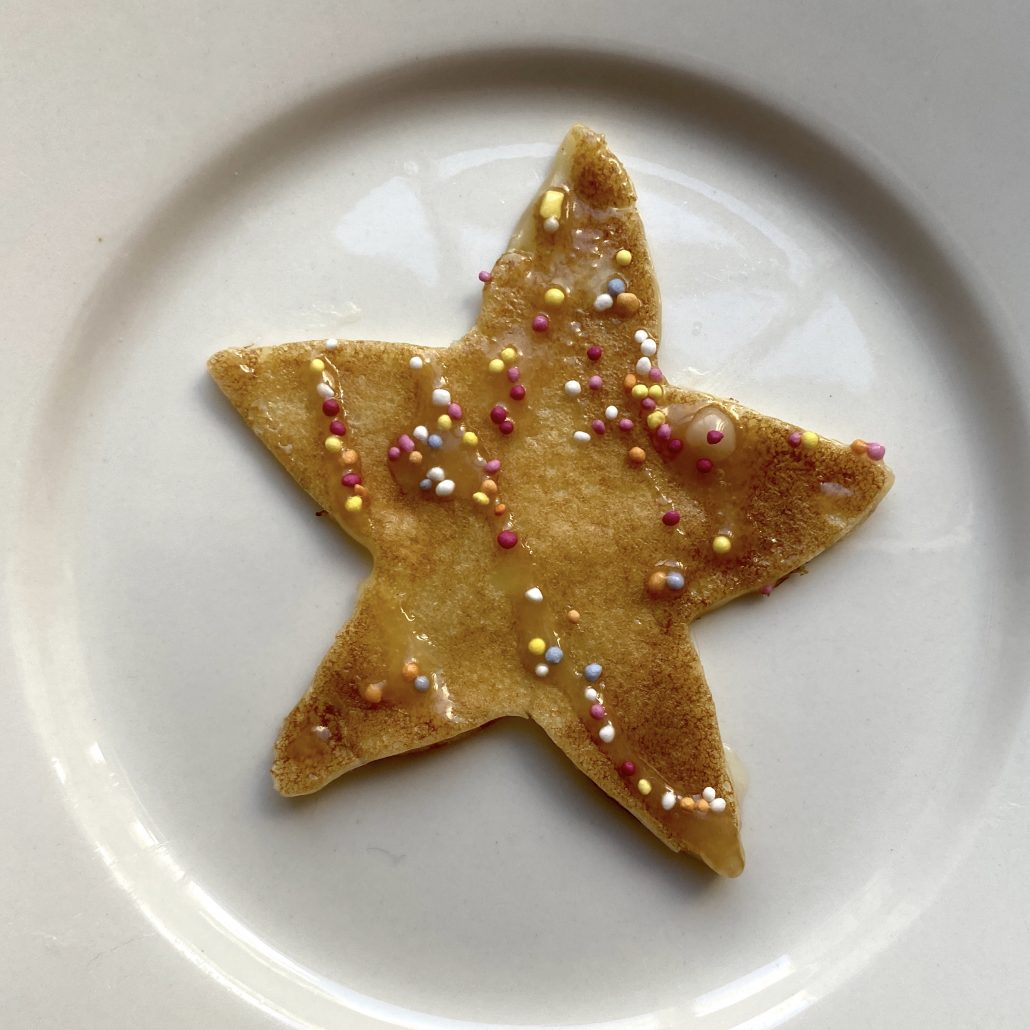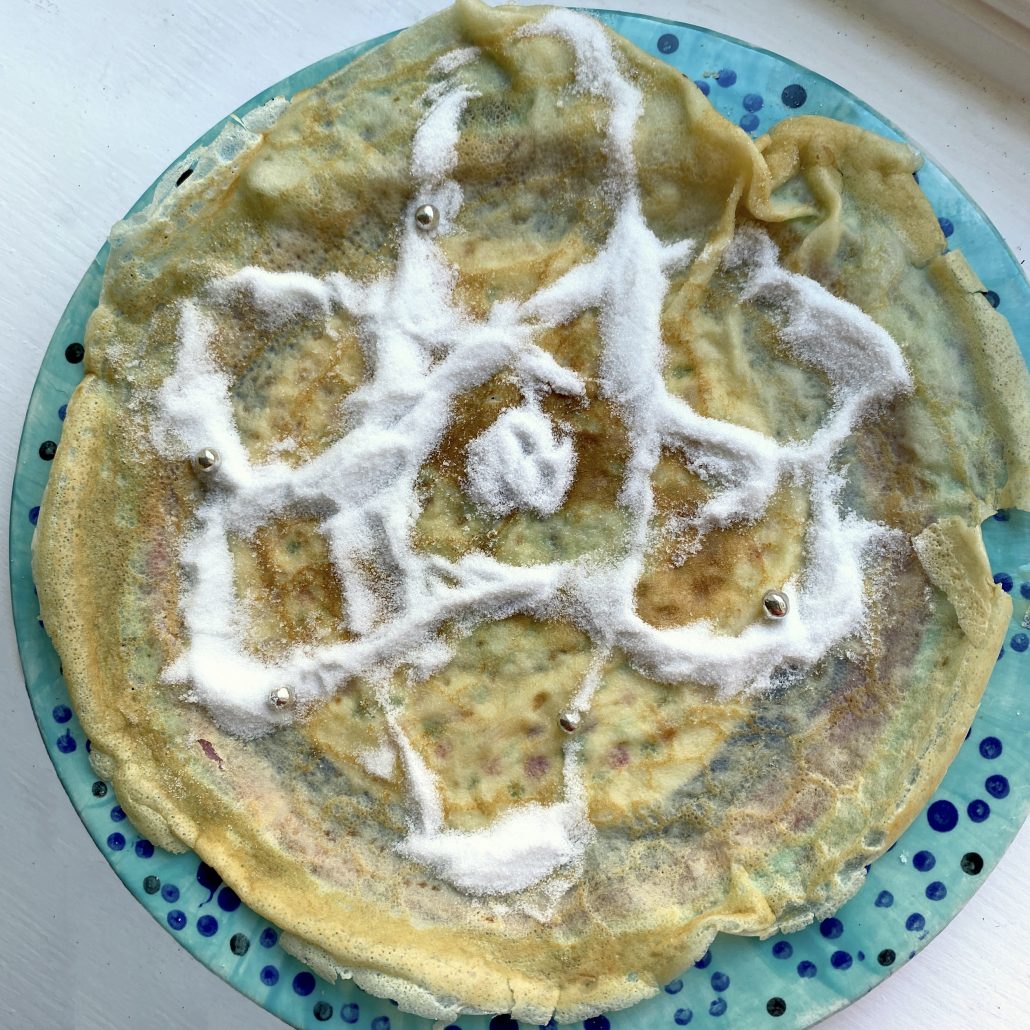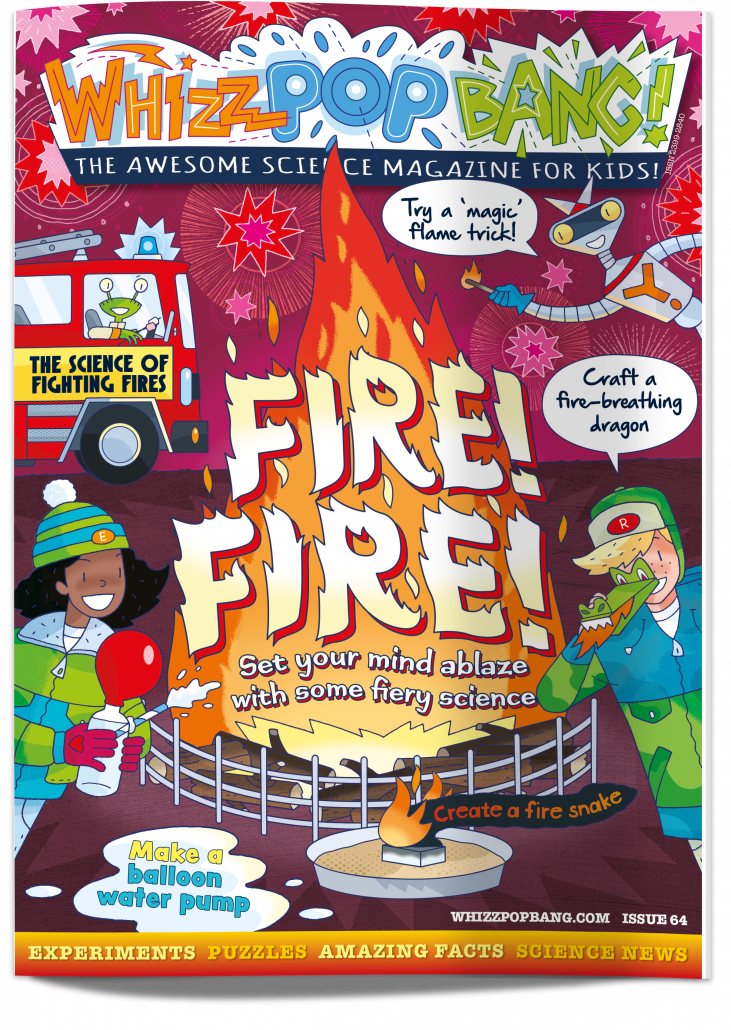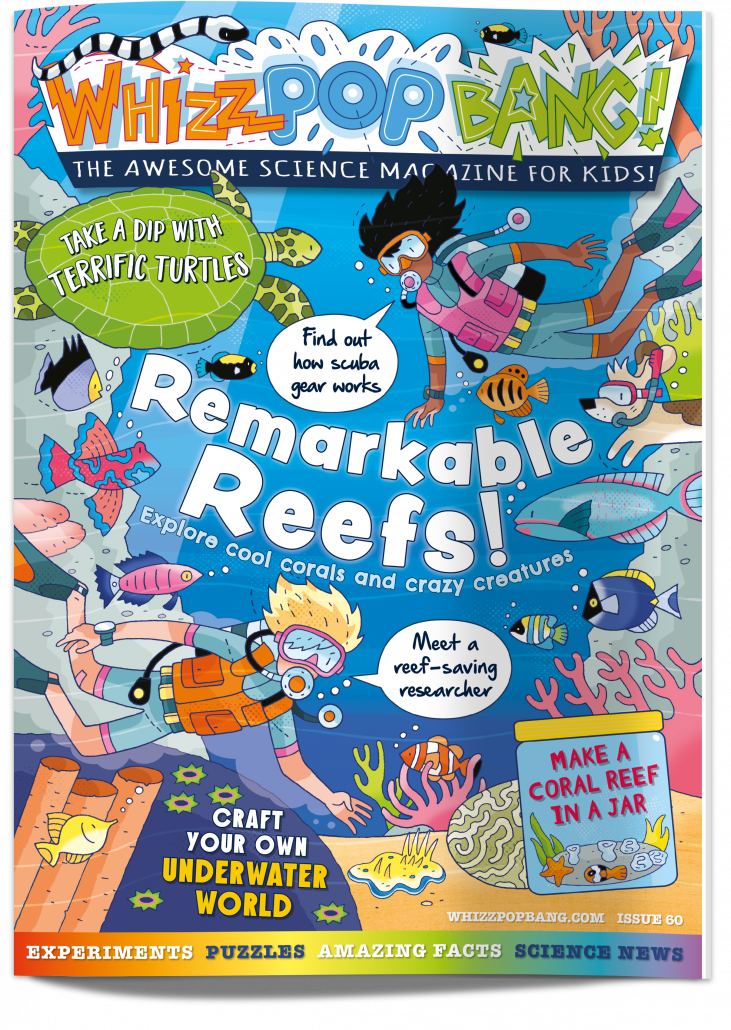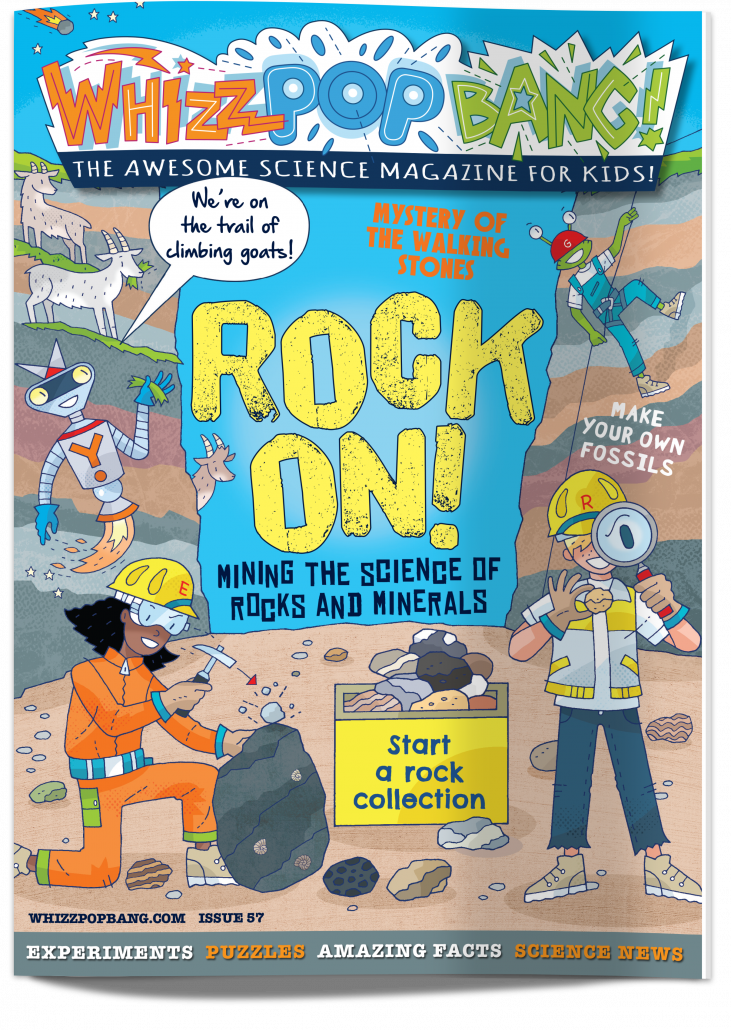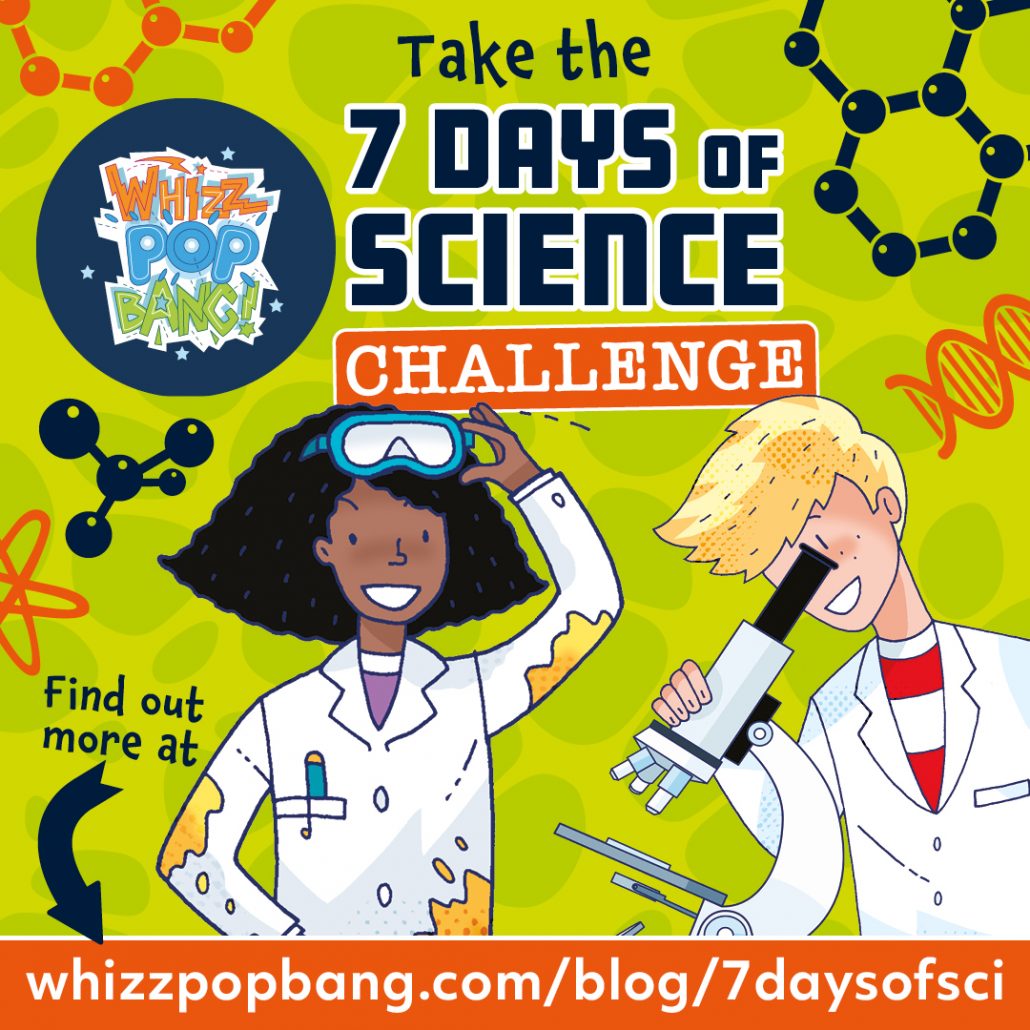
Half term is almost here and families far and wide are wondering how to fill a lockdown holiday with fun and excitement.
Why not take Whizz Pop Bang’s Seven Days of Science challenge? Every day, we’ll give you all the information and resources you need to complete a simple, satisfying and curiosity-awakening challenge from your home. Enter a science pancakes competition and try some kitchen science experiments, science papercraft, science quizzes for kids, nature activities. It’s also a great way to get children well and truly excited about NASA’s Perseverance planned landing on Mars on Thursday 18th February!
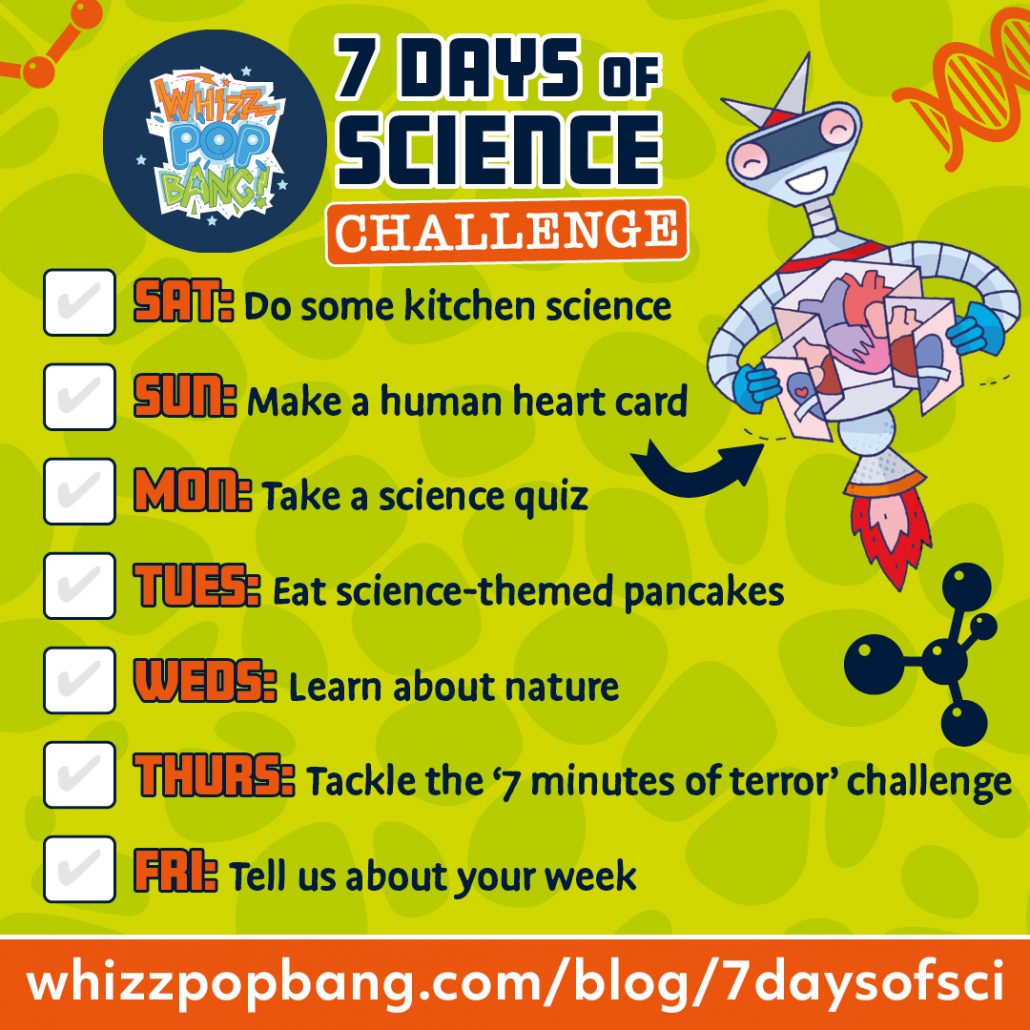
Download a full colour printable tick list here:
Download a low-ink, black and white printable tick list here:
Let’s get started!
Saturday 13th February: Do some kitchen science
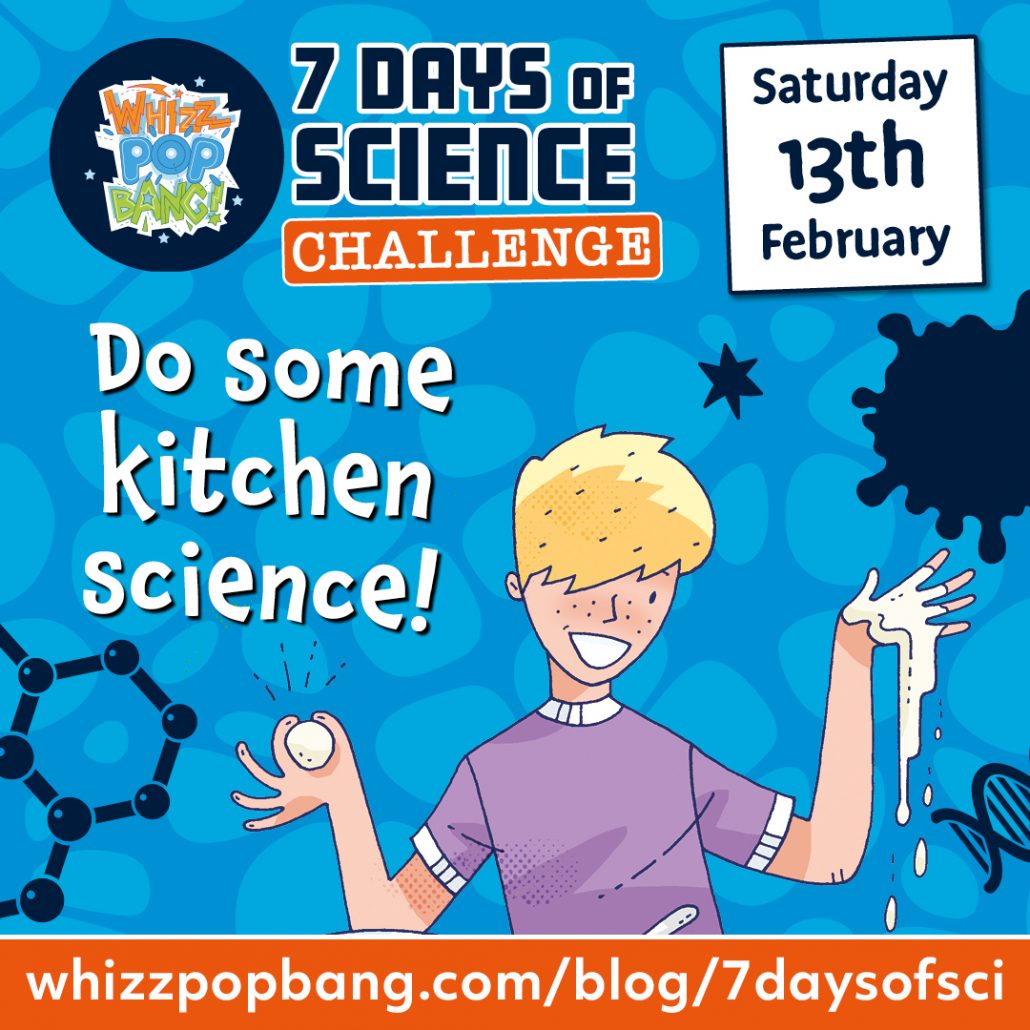
Discover some home chemistry experiments that involve things you’ve probably already got in your kitchen! Here are some you might like to try:
Make gloopy slime! Slime-obsessed children will love this gooey activity! They will make their own slime, then decide if it is a solid or a liquid.
You will need: cornflour, water, mixing bowl, food colouring.
Watch a video tutorial of this activity…
Make your own plastic
Explore making casein plastic from milk in this exciting activity.
You will need: milk, white vinegar, sieve, paper towels.
Make a volcano
Print out a volcano template and create your very own miniature volcano using the harmless chemicals you find in your kitchen cupboards!
You will need: the volcano printout below, a small container (e.g. a spice jar), bicarbonate of soda or baking powder, sticky tape, vinegar, red and yellow food colouring, uncoloured soap or washing up liquid, a tray.
Bubbling magma experiment
Explore the difference between runny magma and viscous magma.
You will need: two glasses, water, a viscous substance (like honey or golden syrup), two paper straws, safety goggles or sunglasses
Sunday 14th February: Make a human heart card
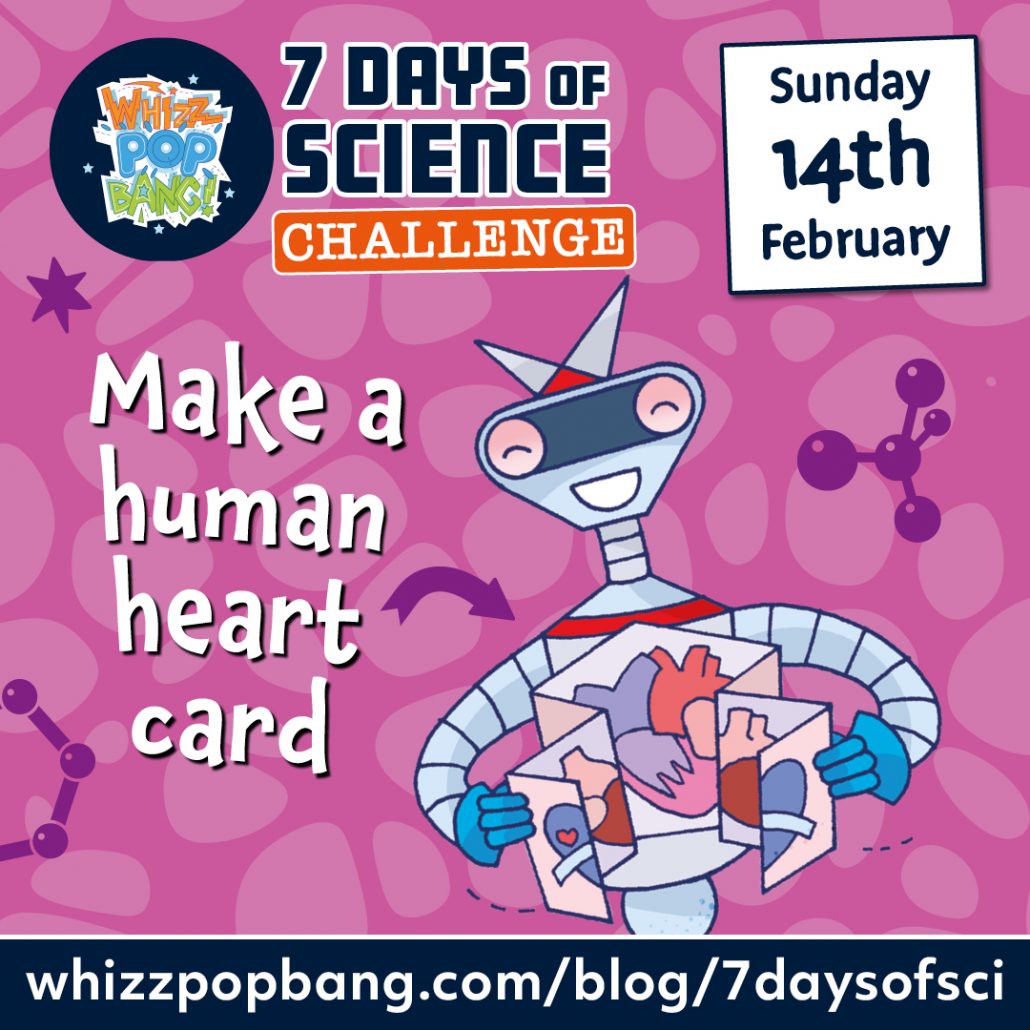
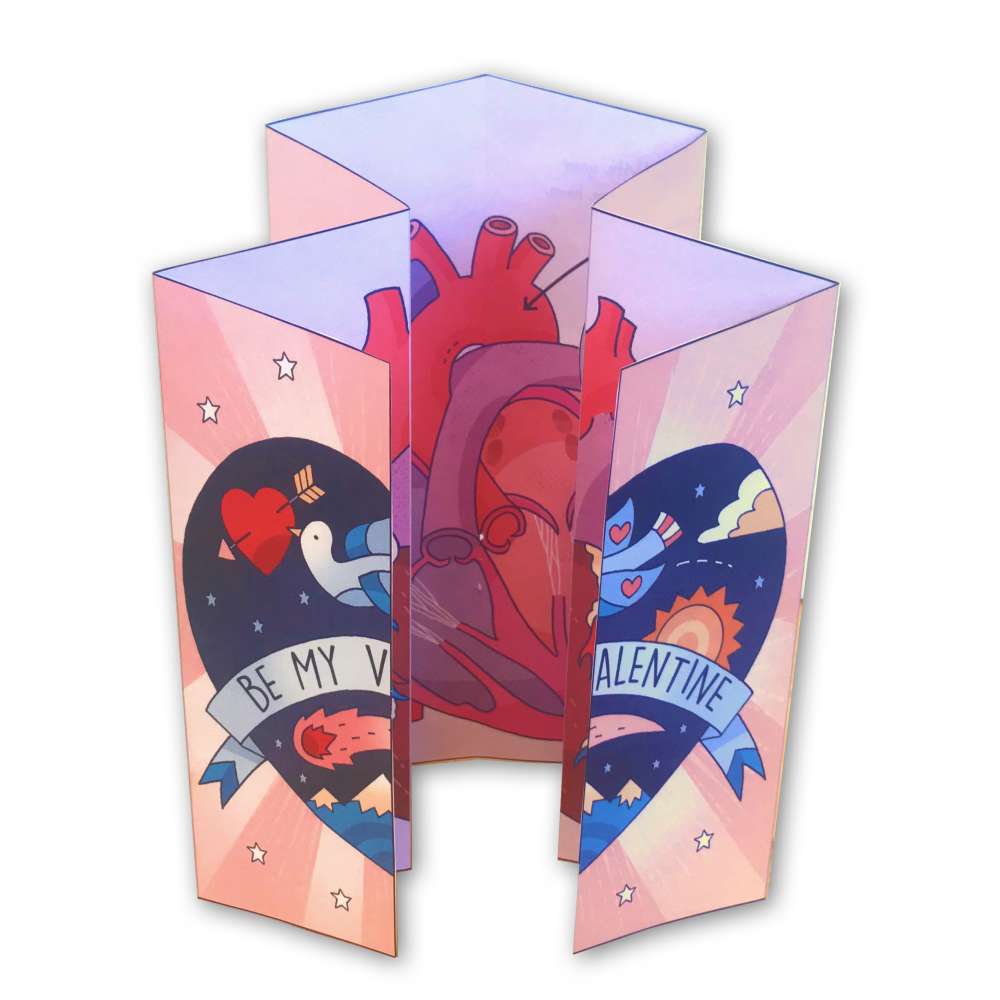
Celebrate Valentine’s Day by making a card featuring a human heart!
You will need: the heart card printout below, scissors, glue stick, pen.
Monday 15th February: Take a science quiz

Give one of our Whizz Pop Bang science quizzes a try!
Already done them both? Why not make up your own!
Tuesday 16th February: Eat science-themed pancakes
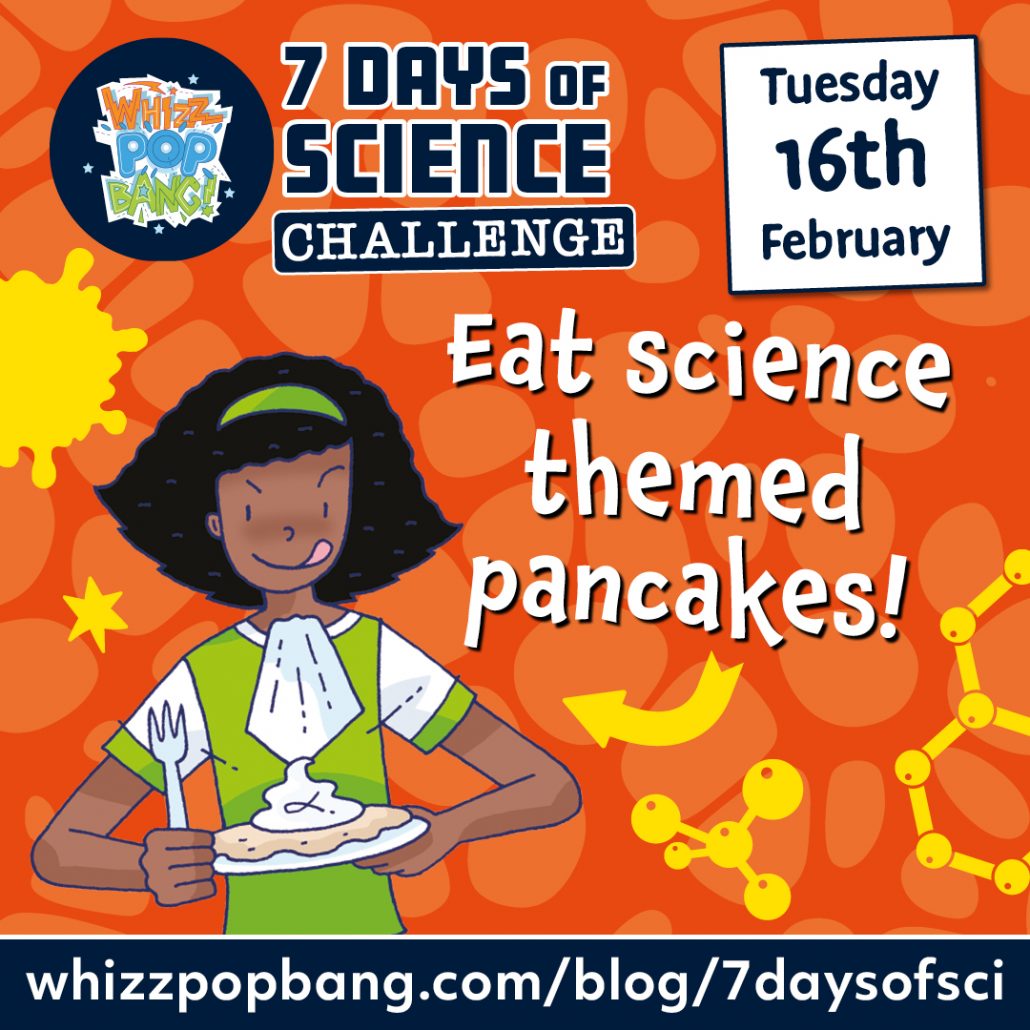
Add a sprinkle of science to Shrove Tuesday to be in with a chance of winning a Stay-at-home science bundle! Find out more about this competition here.
We love this pancake recipe:
BBC Good Food’s perfect pancakes
but your science pancakes can be American style, vegan, savoury… whatever takes your fancy.
Next, decorate your pancakes with something inspired by space, nature, engineering or anything else linked to science! Here are a few ideas to get you started:
Wednesday 17th February: Learn about nature
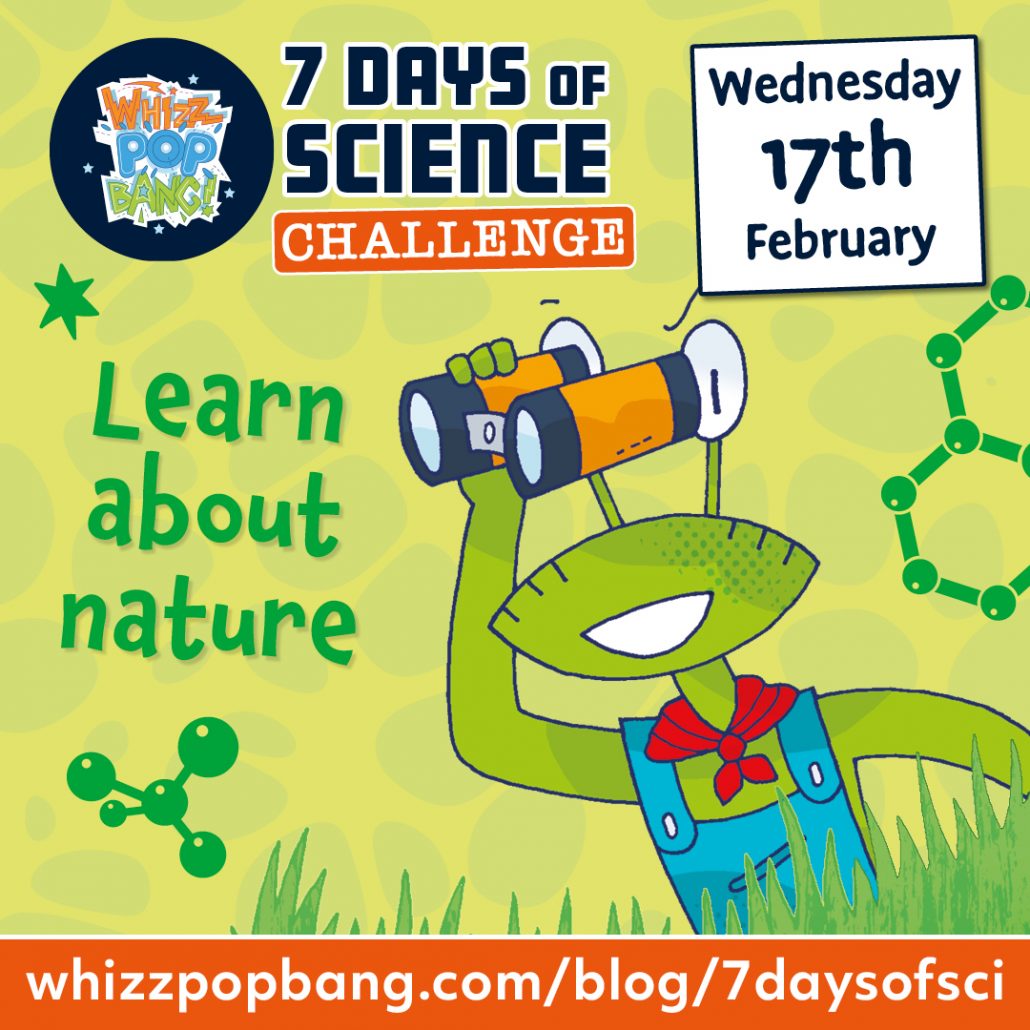
Today’s the day to get outside and do something to help nature! You could refill bird feeders and bird baths, plant some wildflower seeds or go on a litter pick.
To make an upcycled bird feeder, you will need: An empty, clean and dry plastic bottle (e.g. milk bottle), a sharp knife, some sticks, strong glue or glue gun, 30 cm twine
If you want to do something inside instead, give these seed dispersal activities a go – it’s a great way to understand how plants and animals work together.
To make a super-speed peashooter, you will need: Biro or gel pen, dried pea
To make a model dandelion seed, you will need: A sheet of A4 paper, ruler, scissors, pencil, sticky tape
Thursday 18th February: Take the ‘Seven minutes of terror’ challenge!
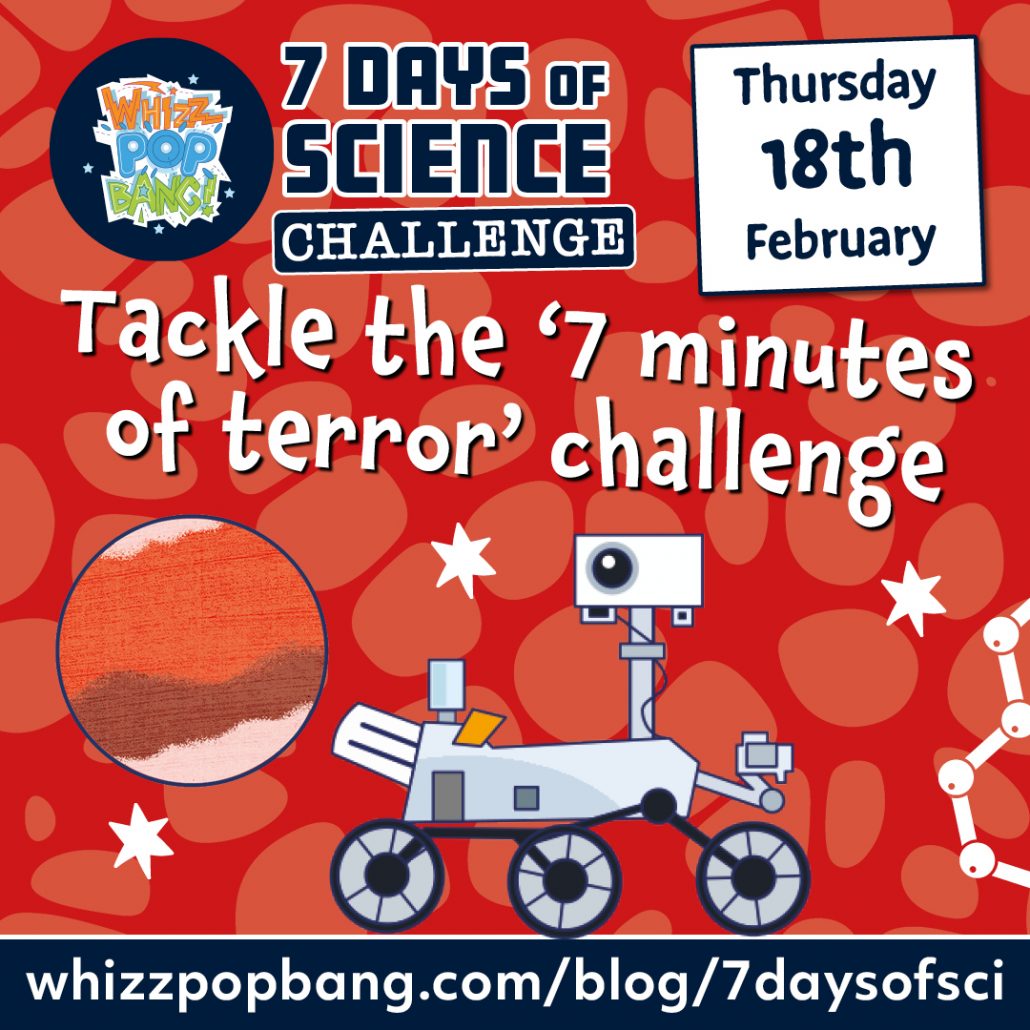
Today’s an exciting day – NASA’s Perseverance rover is due to land on Mars! You can watch the landing at 8.55pm here (but you might have to wait until tomorrow morning – that’s pretty late!)
Meanwhile, take the 7 Minutes of Terror Challenge to discover the hair-raising journey a spacecraft takes as it travels through Mars’s atmosphere. Download the activity here:
Friday 19th February: Say hello to Y!
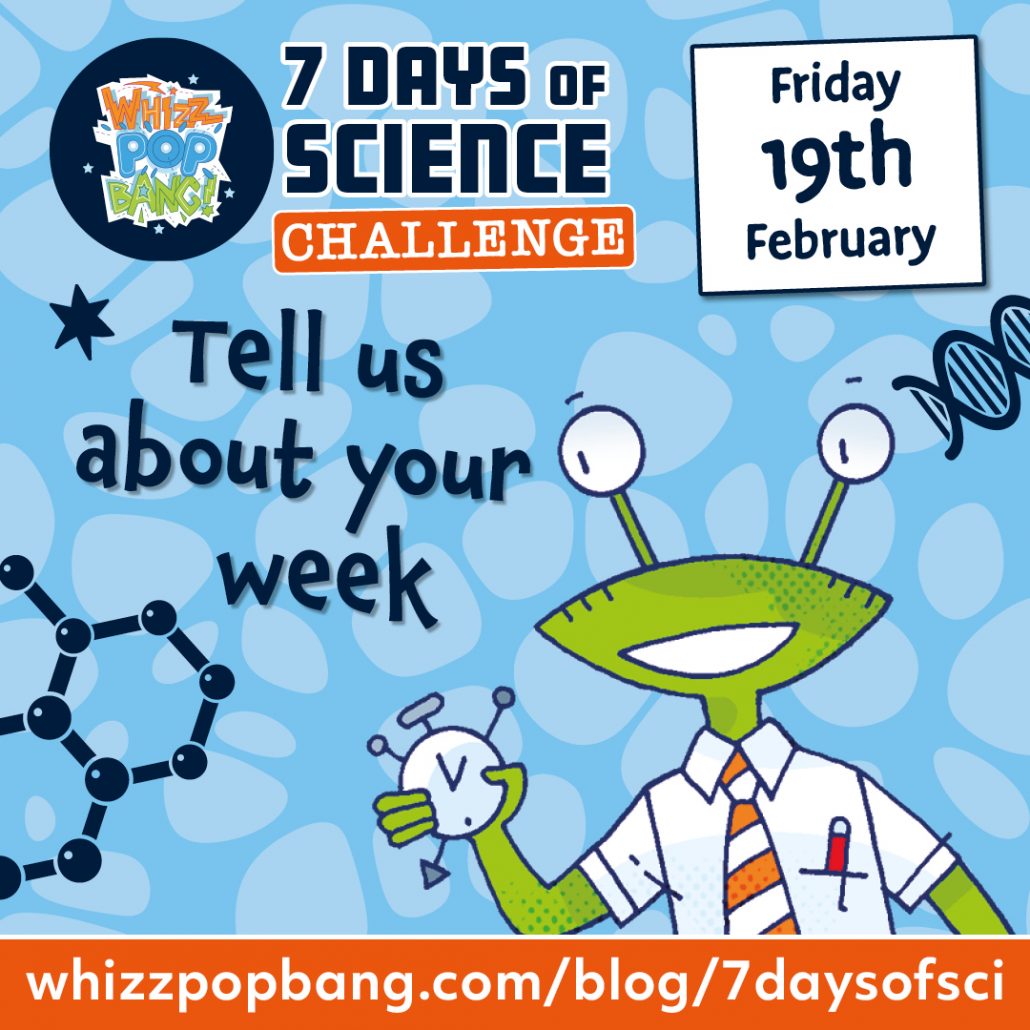
Have you done lots of science activities and experiments this week? Or have you got a burning science question for our all-knowing robot, Y? Send messages, questions and pictures to y@whizzpopbang.co.uk and let us know all about your week of science!
Whizz Pop Bang is a top-quality, gender-neutral, advert-free science magazine for families everywhere. Each issue is packed with experiments, activities, amazing facts, puzzles, jokes, riddles and more. Find out more here!

